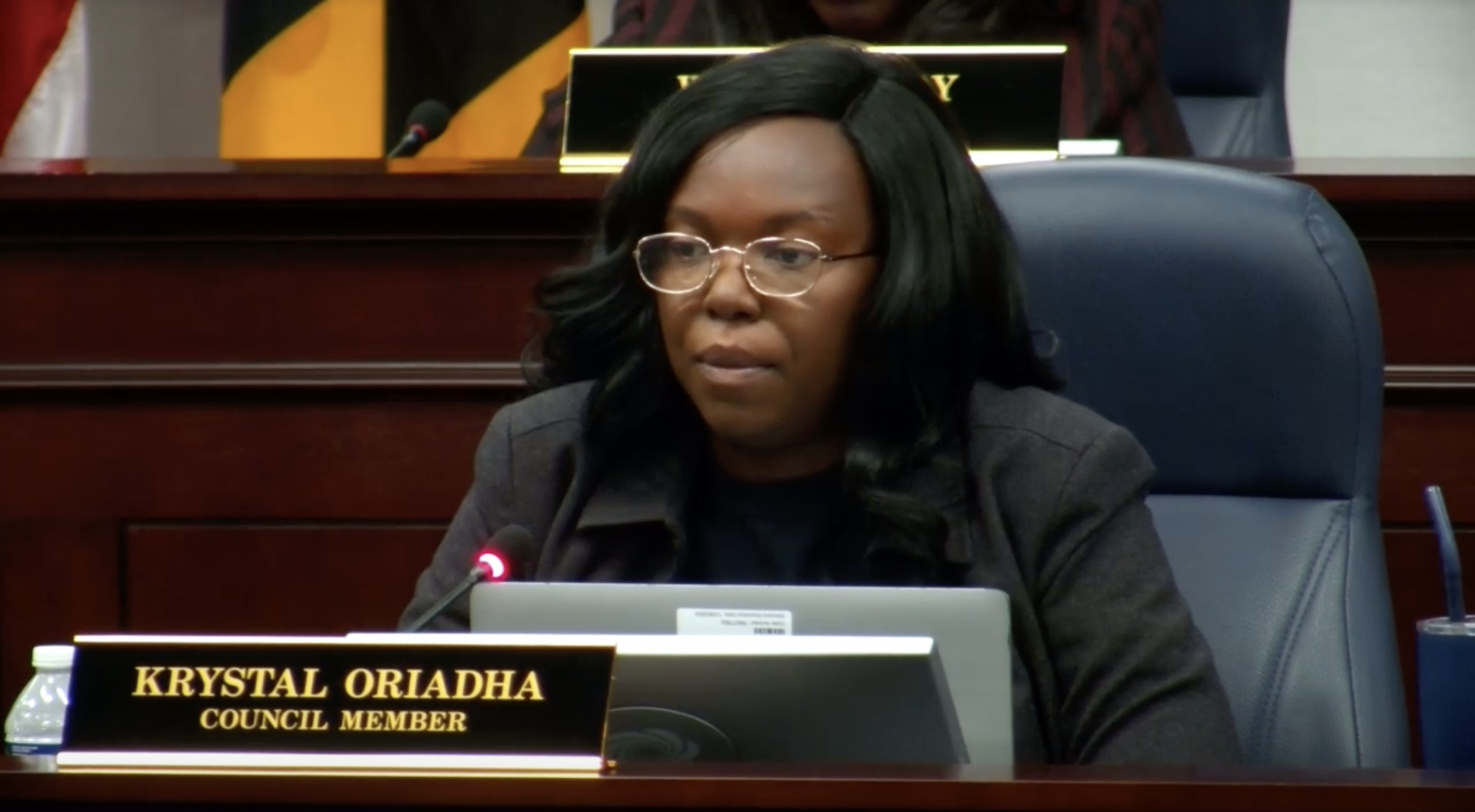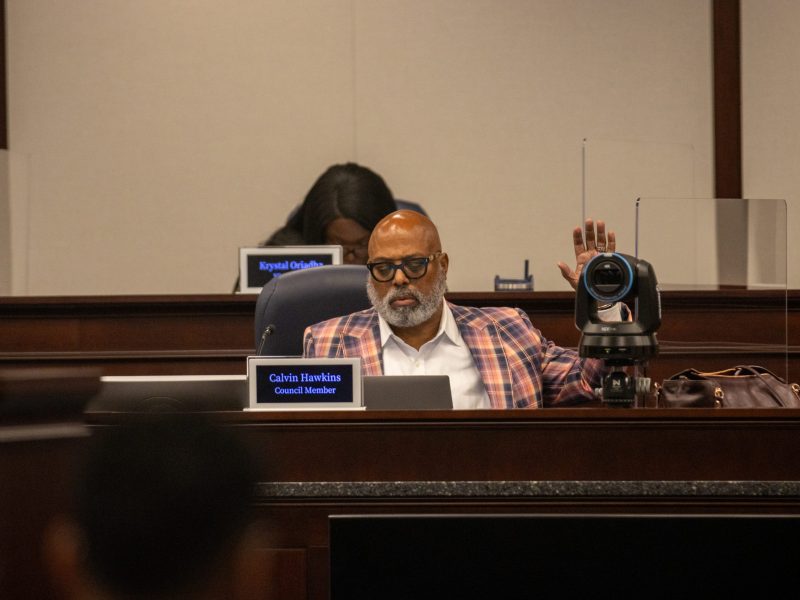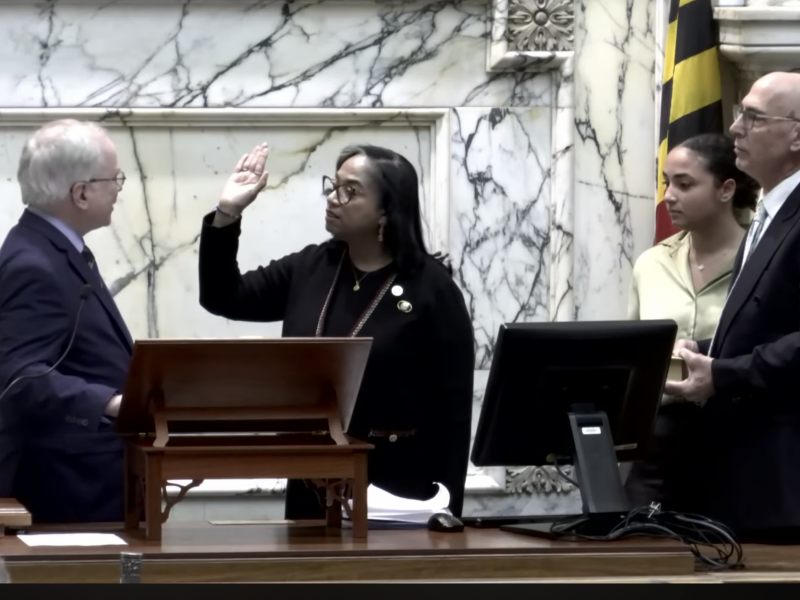The Prince George’s County Council will reconsider legislation on Tuesday that would allow council members to virtually participate in meetings.
The move comes after a 5-5 vote on Sept. 12 failed to change existing policy, resulting in a contentious debate and intense public testimony.
Current rules allow county council members to participate virtually in limited circumstances. The proposed legislation, CR-078, would specifically allow remote voting and attendance for parental leave, illnesses, caregiving responsibilities and events out of the control of the council member, provided they give 24 hour notice of their absence.
District 7 council member Krystal Oriadha, who is currently eight months pregnant, would be one of the first council members impacted by the resolution.
The council allowed virtual participation as recently as January and February of this year as a result of the COVID-19 pandemic. But its attorneys said it could not continue virtually without adjusting its current rules, according to council chair and District 1 council member Tom Dernoga.
[PGCPS community members call for school improvements, transparency during funding hearing]
“None of us were physically present, and we voted all through 2020 and 2021 and 2022,” Dernoga said. “We still had this requirement of being physically present to vote. That’s where the Catch-22 came in.”
The council allowed remote attendance and voting during the pandemic but withdrew virtual accommodations this year after the virus was no longer considered a state of emergency.
Oriadha said the council did not have clear policies regarding remote voting or voting by proxy during maternity leave, so she has advocated for a change since the first few months of her pregnancy.
“Even if I don’t get to reap the benefits of this policy – let’s say it doesn’t pass – I’d still bring it up next session, because it’s not just about me,” Oriadha said. “It’s about every single person that comes after me.”
Oriadha and Dernoga, along with vice-chair and District 6 council member Wala Blegay, District 8 council member Edward Burroughs III and District 3 council member Eric Olson, voted in favor of the resolution.
Blegay said she voted in favor of the resolution to make it easier for all council members to participate, and so that Oriadha would not have to lose her vote if voting in person was not an option.
“We are women leaders, we should always be there to ensure that rules make it easier for women, especially those who are having children or have children, to be able to participate,” Blegay said.
District 2 council member Wanika Fisher, District 9 council member Sydney Harrison, District 4 council member Ingrid Watson and at-large members Calvin Hawkins and Mel Franklin released a statement Monday in support of maternal health and virtual access.
[College Park City Council discusses mental health care coordination service]
The council members voted against the resolution because rules already allow for virtual access in specific circumstances, the statement said. They do not support passing new legislation, but support virtual access “according to our current rules and procedures.”
During his testimony on Sept. 12, Hawkins said he voted against the resolution because the six-member progressive council majority worked against council members Hawkins, Fisher, Harrison, Watson and Franklin, who make up the minority.
Dernoga said the council members who voted against the resolution made it clear that they did so for their voting argument, not because they had a problem with the legislation.
This week, various elected officials, labor organizers and Prince George’s County residents gave public testimony in support of the resolution and Oriadha.
Dyana Forester, president of the Metro Washington Labor Council, submitted a letter on behalf of more than a dozen labor unions and allies during her testimony on Tuesday asking the council to reconsider its vote on the resolution.
Oriadha said she saw the difference she made from the support of her constituents and residents in other districts.
“You’re moving policy, you’re pushing initiatives and you never know if it’s making an impact,” Oriadha said. “To see people saying loud and clear … that they still see me as someone that represents them on the council was really humbling.”



